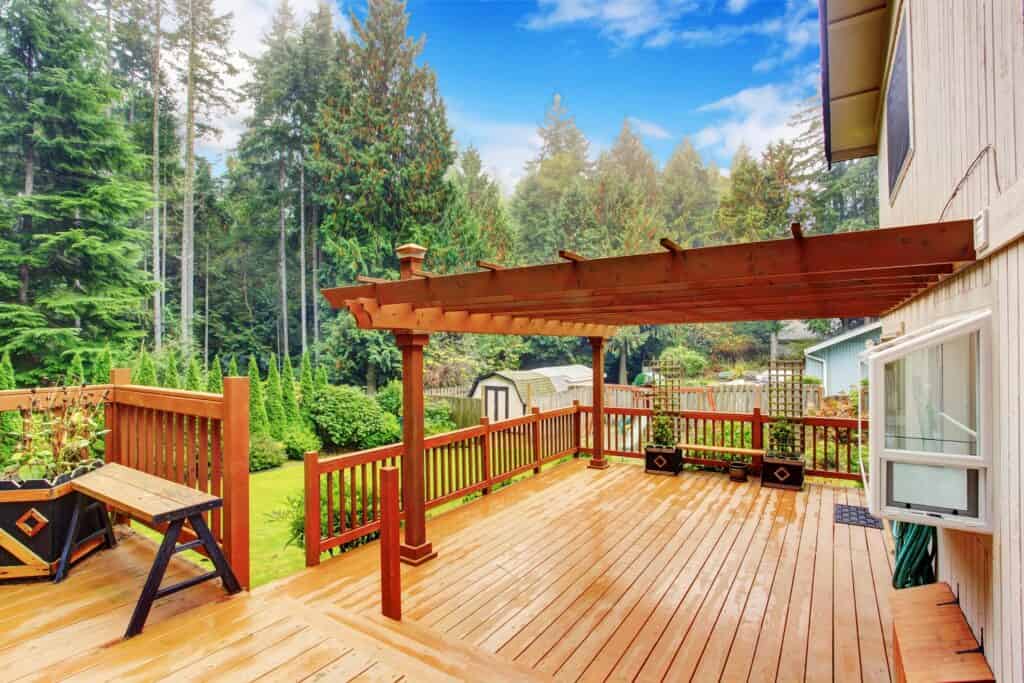A brand-new deck can make for a wonderful addition to a home. When done right, a good deck can boost curb appeal, provide more living space, encourage your family to spend more time outside, and be a good area to entertain guests.
However, all of that can be ruined if the deck is poorly-made or its materials don’t withstand the test of time. And there are plenty of horror stories out there of expensive decks that started falling apart within months of being installed.
A good way to avoid that issue is to choose the right material deck. Here’s how you can go about finding the right option for your project.


Start by figuring out how much you are willing to spend on the deck. This is the best place to start because you can use your budget as a base to determine not only which materials to use but also how big your deck can be. You may be better off building a smaller deck if it means building something that will last decades — and you can always expand it later.
There is a good chance that you’re not familiar with all the deck materials available in the market today. There are just too many of them. Not only are there various types of hardwood that can be used to build a lasting deck, but you can also choose to go with vinyl, stone, concrete, composite, and more.
You’ll find that there are also many ways to apply those materials. Concrete, for example, can be used in its natural color or be coated and stained to be more visually appealing. Staintech.com has some examples of what happens when you stain a deck.
Research for a bit so you can learn more about the materials available. And look for photos of what the final result looks like when different materials are used. You can use that info to start building a shortlist of options.
Different materials will require different amounts of maintenance. And that is important to consider, as it will impact both the lifetime costs of your deck and how much time and effort you’ll need to spend on maintenance every year.
Generally speaking, wood decks will require the most maintenance. Especially if you want to keep the wood from looking old and faded over the years. Concrete and vinyl, on the other hand, require very little maintenance.
Here it is also a good idea to look into the expected lifespan of different materials. Some hardwoods are only rated for ten years of regular use outdoors. This is fine if you’re planning on investing in a new deck later on, but not if you want something that can be a permanent fixture of your house.
Once you’ve narrowed down your options, it’s time to check with local contractors. A deck that lasts doesn’t just need good materials, it also needs to be built well, and the best way to get that is to find contractors who have experience working with a given material. Your final choice of material should be made based on what kind of local talent is available to build the deck.
This website uses cookies.